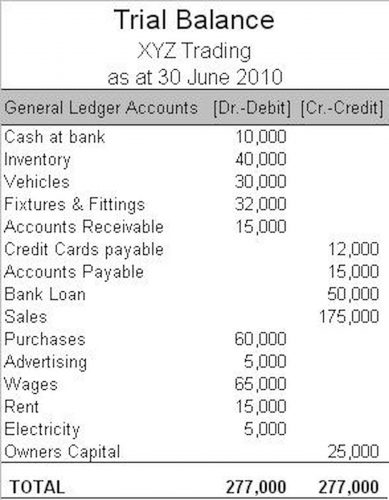Content

Since this is a complex issue, it is recommended to consult a tax professional and check the tax policy of each US state to ensure you are staying within the rules. As a dropshipper, you may be considered self-employed, which means you are subject to self-employment tax. As of 2023, preowned plug-in electric and fuel-cell EVs qualify for a credit of up to 30% of their purchase price, maxing out at $4,000.
Once a vendor is registered in a state to collect sales/use tax for that state, they must collect tax on every transaction delivered into that state. The vendor’s exception comes into play when they ACCEPT a PROPERLY complete exemption/resale certified in lieu of (instead of) collecting the tax. But not all states require the same level of documentation to substantiate and exempt sale for resale as Illinois.
How Drop Shipping Complicates Sales and Use Tax
Michigan offers exemptions on many products, and discounts on others. These include groceries and prescriptions (exempt) and clothing, food, and over-the counter medicines (discounted rates). There are no local tax rates in Kentucky, so the state tax is the only one you’ll need to worry about here.
In origin states, the amount of sales tax charged is based on the rates at the origination point of the product, or where the product is shipped from. For remote sellers (i.e. physically based in one state and selling to another), sales tax is usually destination-based. Modern retail sales tax is generally considered drop shipping sales tax to date back to 1930, and is managed at a state level. Sales tax requires merchants pay sales tax of some kind in states where they have a presence, also known as “nexus”. The sales tax is collected from the consumer, by the merchant, who then sends the collected taxes to the state the tax was collected for.
How to Deal with Sales Tax as a Remote Seller
Virginia began requiring remote sellers to collect and remit sales tax in 2019, if they meet the sales or volume threshold. Marketplace facilitators are also recognized here, as are “marketplace sellers”, sellers who contract with marketplace facilitators to sell their products. Rhode Island has a statewide tax of 7%, so remote sellers do not need to calculate local rates. Remote sellers in Nebraska should be aware of local tax rates, as well as the state tax. Nebraska allows sales tax exemptions for groceries, medicine, and gasoline.
While this option may be costly for smaller businesses, it can be a good solution for those who have grown to a significant size. Many states participate in one of two groups that help to simplify the resale certificate process, the Multistate Tax Commission and the Streamlined Sales Tax Governing Board. Each provide forms and processes for you to use your home state resale certificate with their state members.
How do I claim the EV tax credit?
In the United States, sales tax is imposed on the final consumer. The retailer should be able to purchase items it sells exempt from sales tax under the resale exemption. The transaction between the seller and the customer is a retail transaction and taxed according to the nature of the goods purchased or the type of customer. The retail transaction is not between the manufacturer and the customer and therefore, the manufacturer should not be held liable to collect tax based on the retail price. The transaction between the manufacturer and the retailer is considered a resale transaction and should qualify under the resale exemption which applies in every US State. Mississippi started taxing remote sales in 2017, making it one of the earlier states to enact an economic nexus law.
We recommend researching individual state statutes to determine if you have a sales tax collection responsibility there. Or, if you need help determining where you have sales tax nexus, you might benefit from our Sales Tax Starter Kit service. https://www.bookstime.com/blog/financial-forecasting-for-startups Sales tax may be filed Monthly, quarterly or annually, depending on the average monthly tax liability. It’s important to note that while the threshold to pay sales tax is $100,000, there is a “notice and report” threshold of $10,000.
